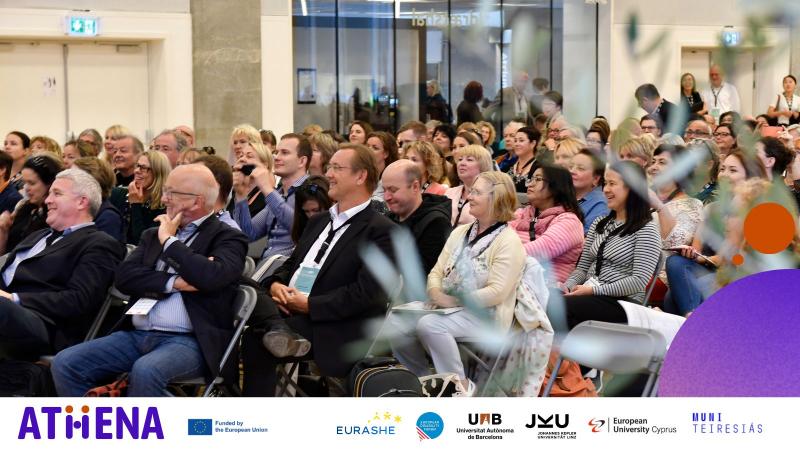
On 28th August, ATHENA project - Bringing Accessibility and Design for All into Higher Education Curricula was presented at the ECER 2024 Conference in Nicosia, Cyprus.
The intervention made by the project consortium focused on the incorporation of Accessibility and Universal Design in university programmes in Cyprus, revealing that these concepts are infrequently and inconsistently integrated across academic domains. Accessibility ensures equal access for all, particularly individuals with disabilities, while Universal Design aims to create environments and systems that accommodate a wide range of abilities and learning needs. Despite their importance, references to accessibility and Universal Design remain sparse in Cyprus' higher education curricula.
The project team examined 21 university curricula across seven academic fields, including Education, Arts and Humanities, and Health and Welfare. The study revealed that accessibility is more frequently addressed in undergraduate programs, particularly within Education, which accounted for nearly half of the relevant courses. Arts and Humanities followed, with accessibility topics appearing primarily in mandatory courses. However, the integration of accessibility and Universal Design often appeared under broader themes like diversity and human rights, rather than as stand-alone subjects.
The thematic analysis also highlighted that, across various programs, the understanding and application of accessibility and Universal Design vary, with some references focusing on human rights and the social model of disability. In contrast, few references were found to the medical model, mainly in health-related fields.
Overall, the study found that while accessibility and Universal Design are present in Cyprus’ higher education curricula, their integration is limited and often indirect. These findings suggest a need for more consistent and comprehensive inclusion of these concepts to create fully inclusive educational environments.
- Log in to post comments